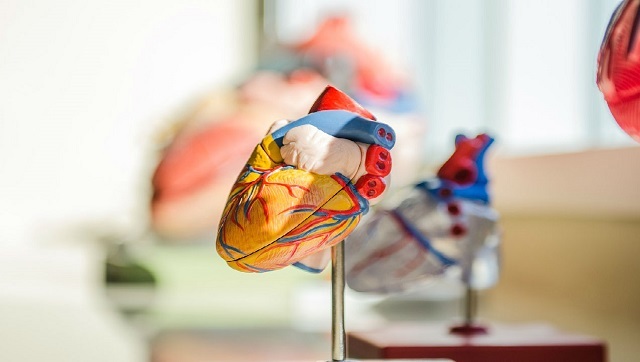On 27 June, Verve therapeutics, a US-based biotechnology firm, in a press release, announced that they have demonstrated, in primate models, the successful use of base-editing to switch off two genes in the liver to reduce blood LDL (low-density lipoproteins) and triglyceride levels. These two factors increase the risk of coronary atherosclerosis. Coronary atherosclerosis or coronary artery disease refers to the development of plaque inside the coronary arteries (arteries that supply blood to the heart). This plaque narrows down the arteries, reducing blood flow. This leads to chest pain, lightheadedness and shortness of breath and increase in the risk of a heart attack. Base-editors are CRISPR-based tools that can specifically make point mutations in the DNA of an organism. Mutations refer to changes in the DNA sequence. A mutation can switch on or off a gene or it can increase or decrease its functioning. [caption id=“attachment_8539321” align=“alignnone” width=“640”]  Representational image. Reuters[/caption] CRISPR-Cas9 system consists of two things - CRISPR, which are short palindromic sequences of DNA/RNA that help identify the target sequences and Cas 9, which is an enzyme that cuts the sequences that CRISPR identifies. The results of the study were presented at the 2020 Virtual Annual Meeting of the International Society for Stem Cell Research (ISSCR). The study For the study, the researchers at Verve targetted and turned off (by giving an intravenous drug) one of the two genes in a group of 14 monkeys - PCSK9 (proprotein convertase subtilisin/Kexin type 9) or ANGPTL3 (angiopoietin-like protein 3). The former produces a protein that increases LDL levels in the blood while the latter produces a protein that increases blood-triglyceride rich lipoprotein levels. Results were noted two weeks after delivering the drug. Here is what was found:
- The animals who got the PCSK9-silencing drug showed a 59% reduction in blood LDL and about 89% reduction in the PCSK9 protein in the plasma. About 67% of the PCSK9 gene in the liver was edited.
- The animals who got ANGPTL3-silencing drug showed a 64% reduction in blood triglycerides and a 19% reduction in blood LDL levels along with a 64% reduction in ANGPTL3 protein in plasma. About 64% of the ANGPTL3 gene in the liver was edited.
The future prospects According to the World Health Organisation, cardiovascular diseases, including coronary artery disease, are the number one cause of death in the world, claiming about 17.9 million lives each year. The condition is currently treated through a combination of lifestyle modifications and medications to control the symptoms and keep the disease from worsening. Surgery is often needed to remove the plaque. Praising their new tool, Dr Andrew Bellinger, Chief Scientific Officer at Verve Therapeutics said in the press release that the fact that PCSK9 and ANGPTL3 can be silenced safely and effectively in non-human primates and that blood LDL and triglyceride levels can be reduced is very exciting. He added that one of the most important things is that no other non-target gene was affected in the study and that this just proves that Verve’s once-and-done gene editing treatments may actually be effective in treating coronary artery disease in adults. Since the genes are silenced, the person will not need to be on treatment for long. Verve is set to start the clinical phase of their study by 2023. For more information, read our article on Heart Disease. Health articles in Firstpost are written by myUpchar.com, India’s first and biggest resource for verified medical information. At myUpchar, researchers and journalists work with doctors to bring you information on all things health.


)

)
)
)
)
)
)
)
)



